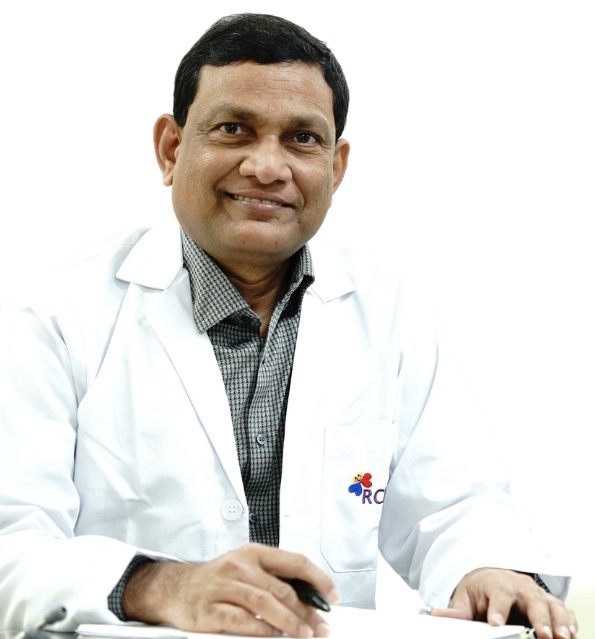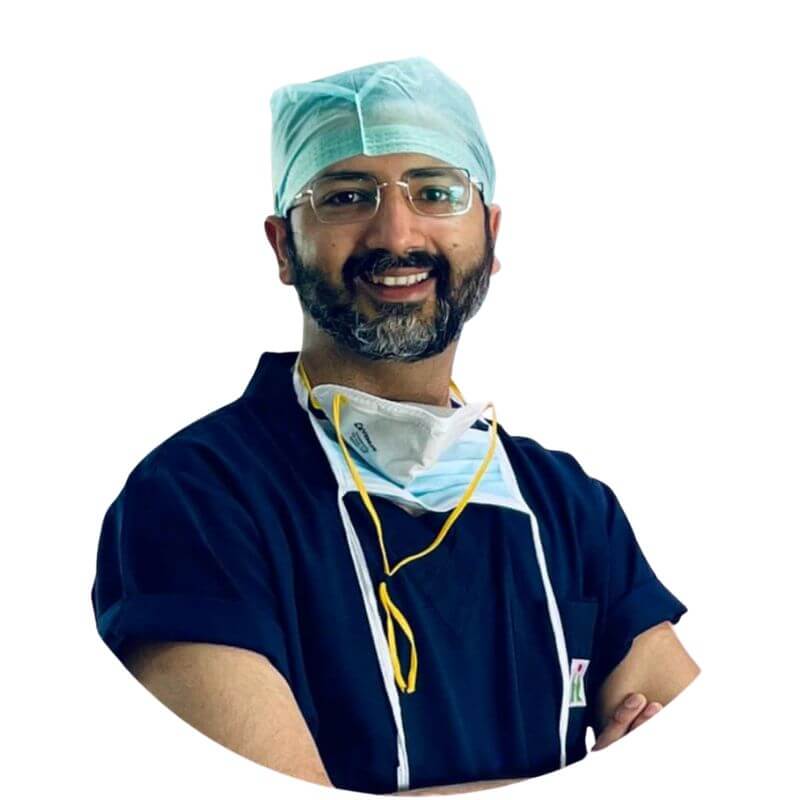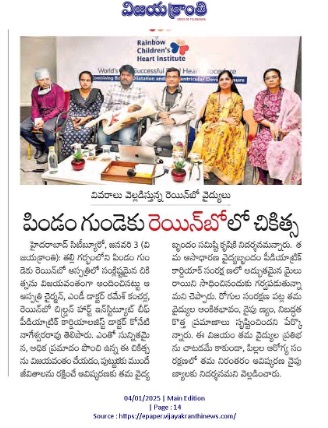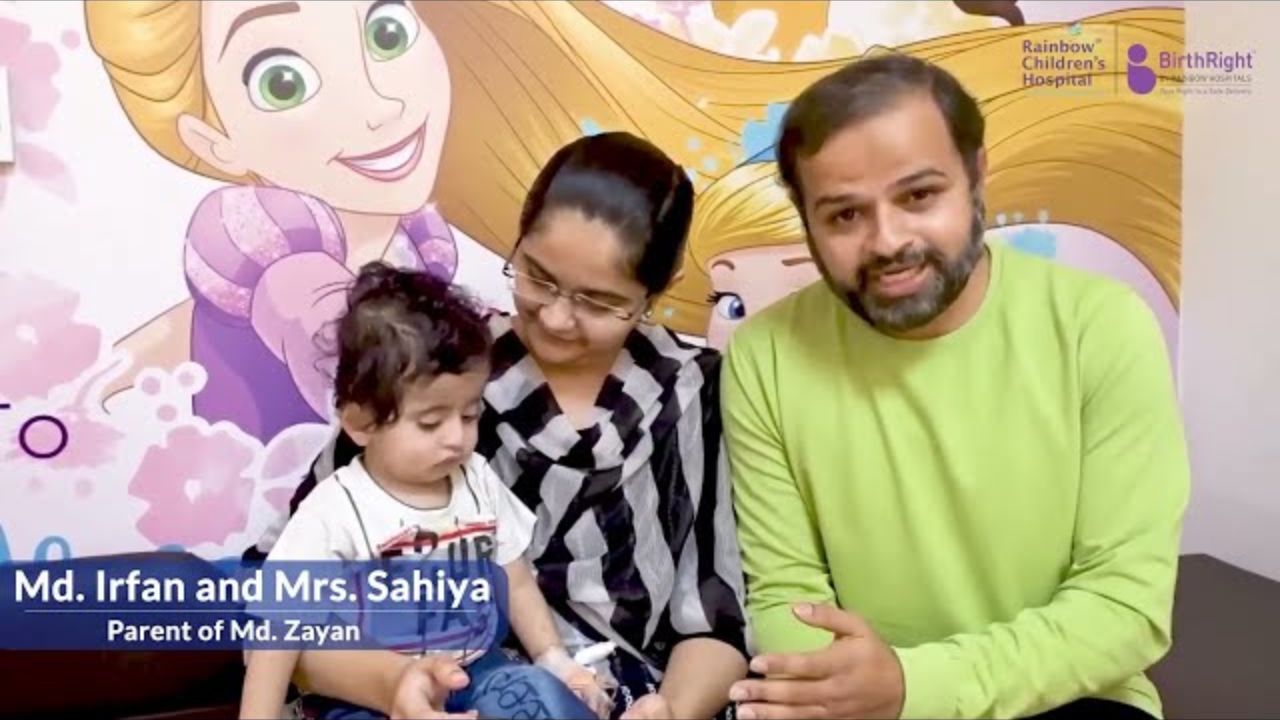Heart block in children - Its risk factors and treatmentBy RCHI 04 Feb 2021
The heart is an involuntary muscle, which means that the muscles are not under conscious control and work via the control of the central nervous system. However, for every beat of the heart, a signal has to be given for the muscle to contract and expand to pump blood. This signal travels from the upper part of the heart to the lower part.
Heart Block is a condition wherein this signal is either slowed down or is completely stopped. The condition can have a severe effect on the heart rate of a child. The rhythm of the heartbeats is also affected in this condition.
Heart Blocks are divided into three degrees depending upon the severity and stage of the issue and the amount of signal the heart receives –
- First-degree heart block – The signals that the heart receives are slower but the heart pumps blood regularly. Diagnosis of this degree heart block is difficult. Treatment may or may not be required depending upon various other factors such as the age of the child, other diseases, etc.
- Second-degree heart block – Some of the signals that are supposed to reach the heart don’t get there. The other signals are slow as well. In this condition, it is common for the heart to miss a few beats and have irregular rhythms.
- Third-degree heart block – This is the highest level of heart block and can be potentially fatal. The heart rate gets extremely low due to the absence of signals.
Signs and Symptoms of Heart Block
Symptoms can differ with the age of the child and the severity of the heart block. The most common signs and symptoms of Heart Block in children include –
- Frequent chest pain
- Fatigue and exhaustion
- Shortness of breath
- Heart skipping beats
- Dizziness and fainting
- Nausea
With third-degree heart block, the symptoms can be life-threatening. It is best to take your child to Rainbow Children’s Heart Institute, a child heart hospital if he/she is exhibiting the following symptoms -
- Fainting and dizziness
- Cardiac Arrest
- Irregular Heartbeat
Risk Factors of Heart Block
The risk factors of a Heart Block are quite high. If left untreated, it could lead to serious life-threatening conditions. Some of the most common causes of heart block are scarring of the heart tissue and coronary artery disease. These can be caused due to the development of diseases called the Lev’s and Lenegre’s diseases that can degenerate the heart tissue.
In most cases, children with the following conditions or diseases are at a higher risk of getting Heart Block –
- Inflammation of the heart muscle, which is known as Myocarditis
- Coronary Thrombosis
- Cardiomyopathy
- Tissue scarring in the heart muscles
- Inflammation of heart valves, also known as Endocarditis
- Lyme disease
Children with high potassium levels, hyperthyroid, and who have undergone recent heart surgeries also have a higher risk of having a Heart Block. If you think your child comes under the high-risk section, you should consult the best heart surgeon in Hyderabad to diagnose any problems.
Causes of Heart Block in Children
Heart Block in children can be due to a lot of reasons. Many cases of pediatric Heart Block are congenital. The causes behind a congenital heart block could be a birth defect formed during the formation of the body or autoimmune diseases that are passed on from the mother to the child. The exact cause of birth defects is difficult to know.
An acquired heart block in children is less common but can happen during childhood. Some of the causes behind developing a heart block in childhood are –
- Muscle disorders
- Specific medications
- Chromosomal changes in genes
- Surgery that affected the heart
- Other heart diseases
Diagnosis of Heart Block
Diagnosis of Heart Block can be done by a pediatric cardiologist by listening to the heart rate of your child. If there is cause for concern, your doctor will order tests like an Electrocardiogram (ECG) to check the electrical activity of the heart. Wave patterns created by the electrical impulses of the heart can indicate any abnormalities.
Treatment of Heart Block
For first-degree heart block, most children do not require any surgery. If the heart block is caused due to any underlying issue, treatment for that issue can resolve or improve the issue of a Heart Block. For second-degree and third-degree heart blocks, your child may require a pacemaker. This is a small device that is inserted in the chest area and releases electrical impulses that remind the heart to beat and pump blood. Treatment will differ according to the individual cases as no two cases of Heart Block will be the same.
<Recent Blogs
Our Doctor
Dr. Koneti Nageswara Rao
Chief Pediatric Cardiologist Pediatric Cardiology
English, Telugu Banjara Hills, Road No 10Dr. Shweta Bakhru
Senior Consultant Pediatric Cardiology
English, Hindi, Marathi Banjara Hills, Road No 10Dr. D. Sri Phani Bhargavi
Consultant Pediatric Cardiology
English, Telugu Banjara Hills, Road No 10 KondapurDr. Pooja Sinha
Consultant Pediatric Cardiology Pediatric Cardiology
English, Bengali, Hindi, Telugu Banjara Hills, Road No 10Dr. Chauhan Abhinavsingh Abhimanyusingh
Consultant Pediatric Cardiac Surgeon Cardiothoracic Surgery
English, Hindi Banjara Hills, Road No 10Dr. Konda Ramakrishna
Pediatric Cardiac Intensivist Intensive Care Unit
English, Hindi Banjara Hills, Road No 10Dr. Krishnan Ganapathy Subramaniam
Director - Pediatric cardiothoracic surgery Pediatric Cardiology
English, Hindi, Tamil, Telugu Heart Institute, Banjara Rd 10

















